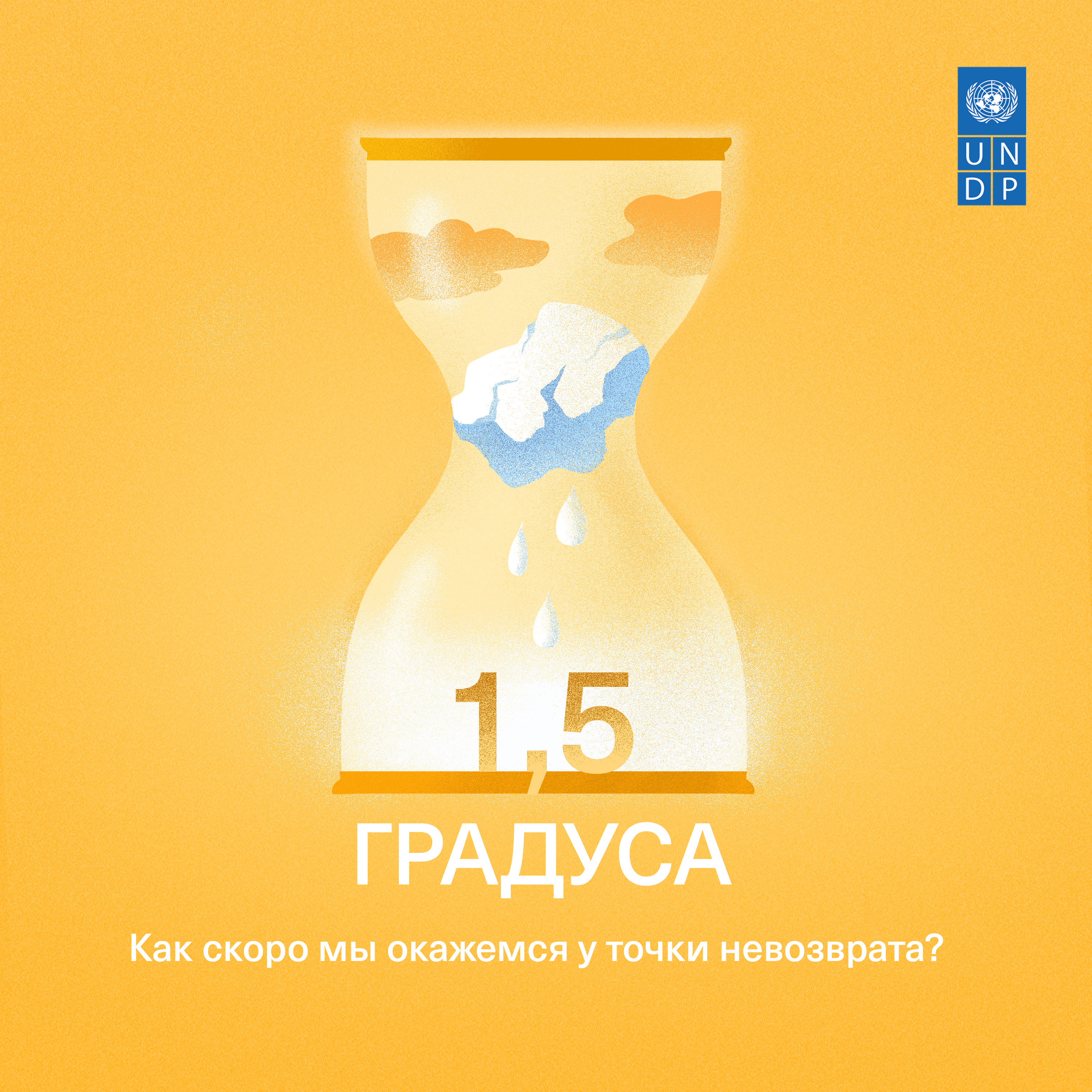'One and a half degrees' podcast on the topic of ecology and climate change

We have launched One and a half degrees podcast, within which we will know the topic of ecology and climate change.
The podcast is available in apps:
· Apple Podcasts: https://apple.co/3ySZlFs
· Yandex Music: https://bit.ly/3wH2h6u
· YouTube: https://youtu.be/aY2IRNmYOMs
The city could do it and we can: how to reduce air emissions in megacities?
Today, we together with the United Nations Development Program @undp.kazakhstan, launch One and a half degrees podcast, within which we will know the topic of ecology and climate change.
The guest of the first episode was Mr. Saulet Sakenov, an expert on climate change and a technical advisor to the climate change portfolio of the United Nations Development Program in Kazakhstan.
He talked about how urbanization in the country is linked to climate change, why industry needs to get in with green technologies and what simple steps will help everyone on the way toward reducing the greenhouse effect.
Trick or treat: how will energy efficiency reduce utility payments?
You've probably already heard about energy efficiency and its principles.
At first sight, it seems that it is difficult, but in fact the way to it lies through small habits: to do not leave charging in sockets, save electricity and water, turn off the tap while brushing your teeth.
In a new episode of the podcast Mr. Alexander Bely, Project Coordinator of the United Nations Development Program @undp.kazakhstan in Kazakhstan and the Government of the Republic of Kazakhstan on Energy Efficiency have answered our questions about energy efficiency.
We are talking about how to save money on public utilities, what smart heating is and why modernization of residential buildings is needed.
Mars will wait: is it worth adapting to climate change?
Climate change is an inevitable process.
Kazakhstan, due to its geographic location, is the most vulnerable to these changes. We are already seeing severe drought, river shallowing and extreme weather conditions. The only thing that can really be done now is to take measures to adapt to climate change.
In this episode of the podcast, Mrs. Janelle Karina, climate change expert at the UNDP Kazakhstan @undp.kazakhstan project, talks about water scarcity in Kazakhstan, risks and forecasts for the future, as well as UNDP projects to adapt to climate change.
We talked about how the drought could affect the wheat harvest and GDP in the country and what can be grown in Kazakhstan under the new conditions.
Climate Races: Why are talks on Climate Change matter needed?
Why are talks on Climate Change matter needed?
In the new episode, you will learn about how countries are uniting to solve important environmental problems and whether Kazakhstan is keeping up with its responsibilities in the fight against greenhouse gas emissions.
Mrs. Gulmira Sergazina, Climate Change Project Manager of the United Nations Development Program in Kazakhstan, answers questions.
Sun to every house: how and why to use renewable energy sources?
Everyone around is talking about the importance of renewable energy sources, but how does it actually work?
In the new episode, we talked with Mr. Syrym Nurgaliyev and Mr. Yerlan Dairbekov, UNDP experts. They talked about why it is important to use renewable energy sources and what is the difficulty of its implementation.
Great hopes: will Kazakhstan fulfill its commitments to reduce greenhouse gas emissions?
Did you know that the greenhouse effect is what gave birth to life on Earth? The most common greenhouse gas is carbon dioxide, or CO2. We exhale it, and plants, on the contrary, absorb it. CO2 itself does not pollute the air. However, the more carbon dioxide plants emit, the more this is reflected in the processes in nature.
In the sixth episode of the podcast, Mr. Sabyr Asylbekov, climate change specialist of the United Nations Development Program in Kazakhstan, talked about the greenhouse effect and environmental promises of Kazakhstan at the international level.

 Locations
Locations